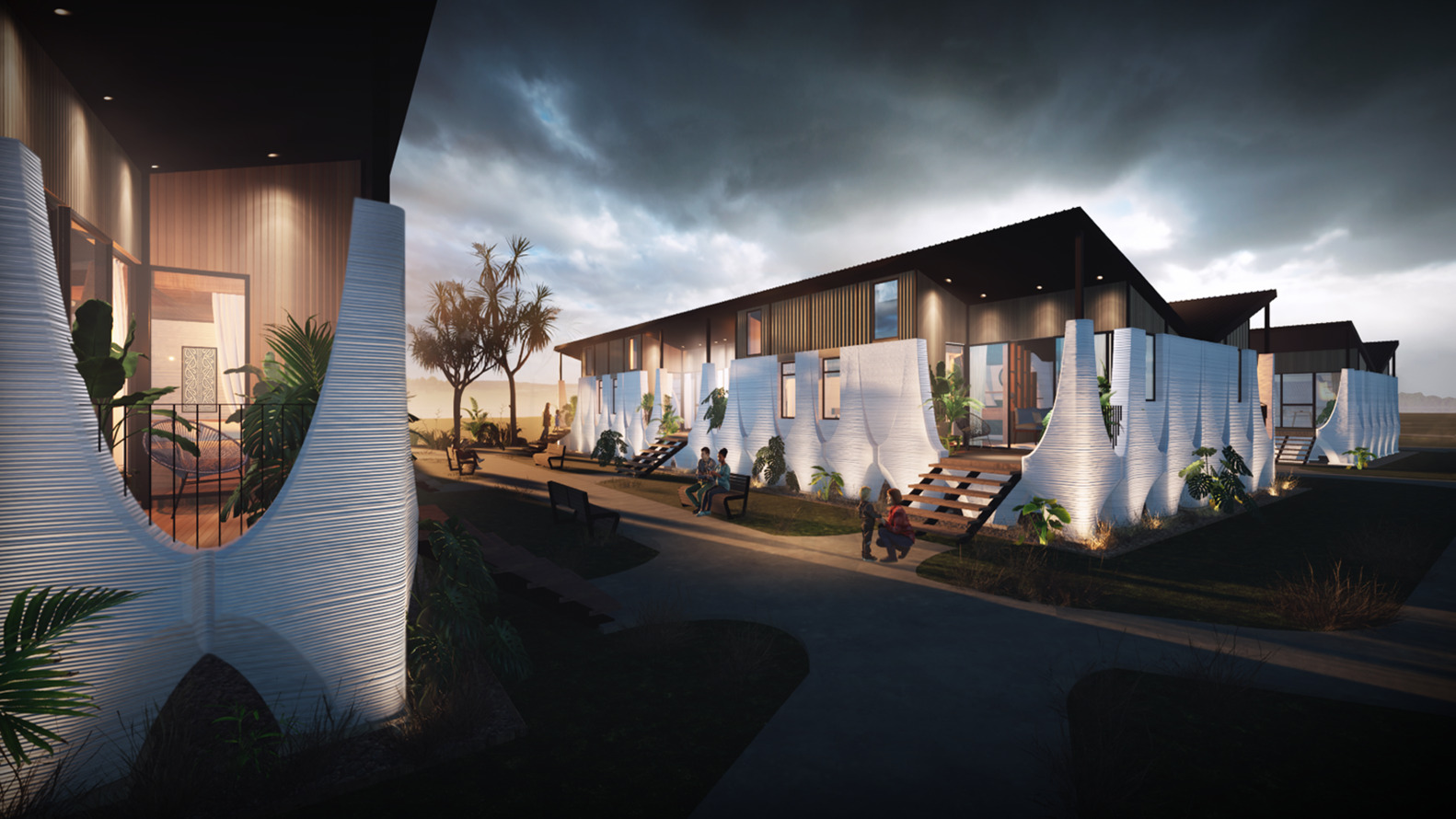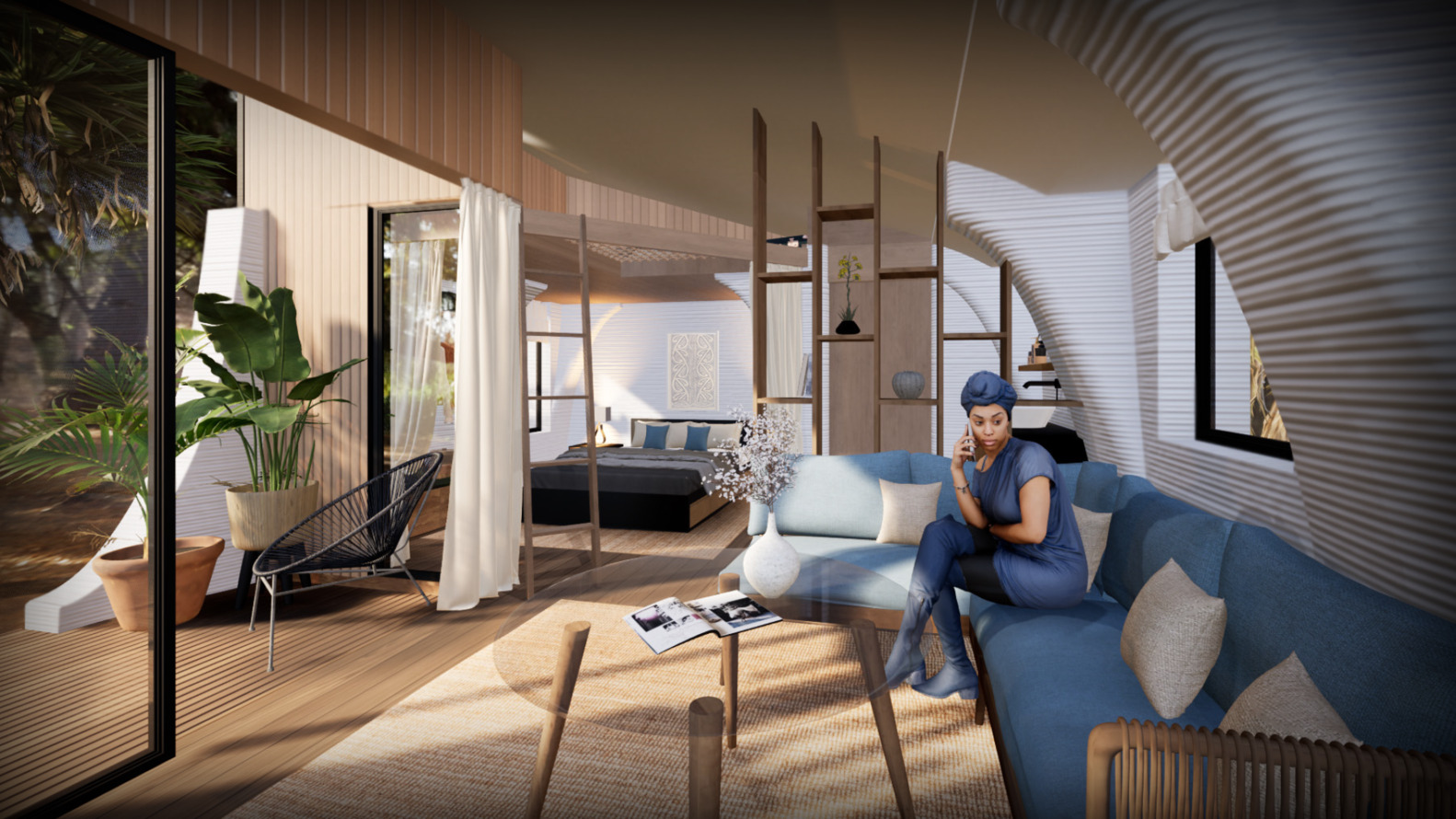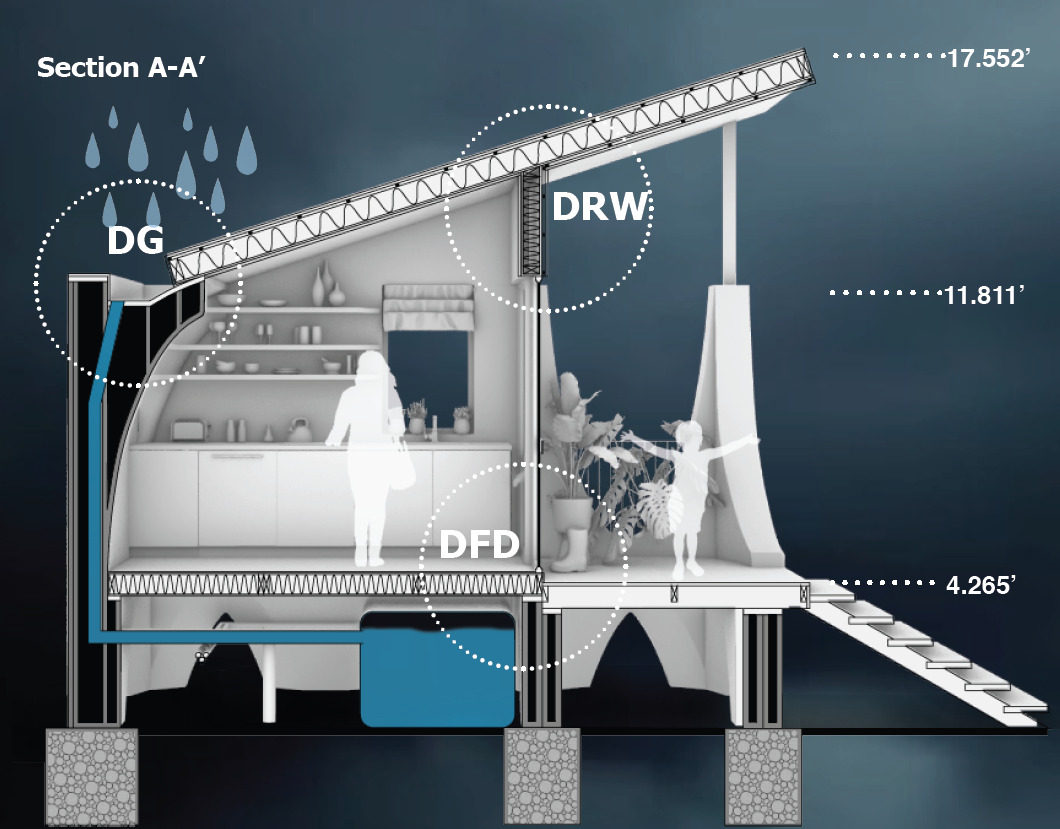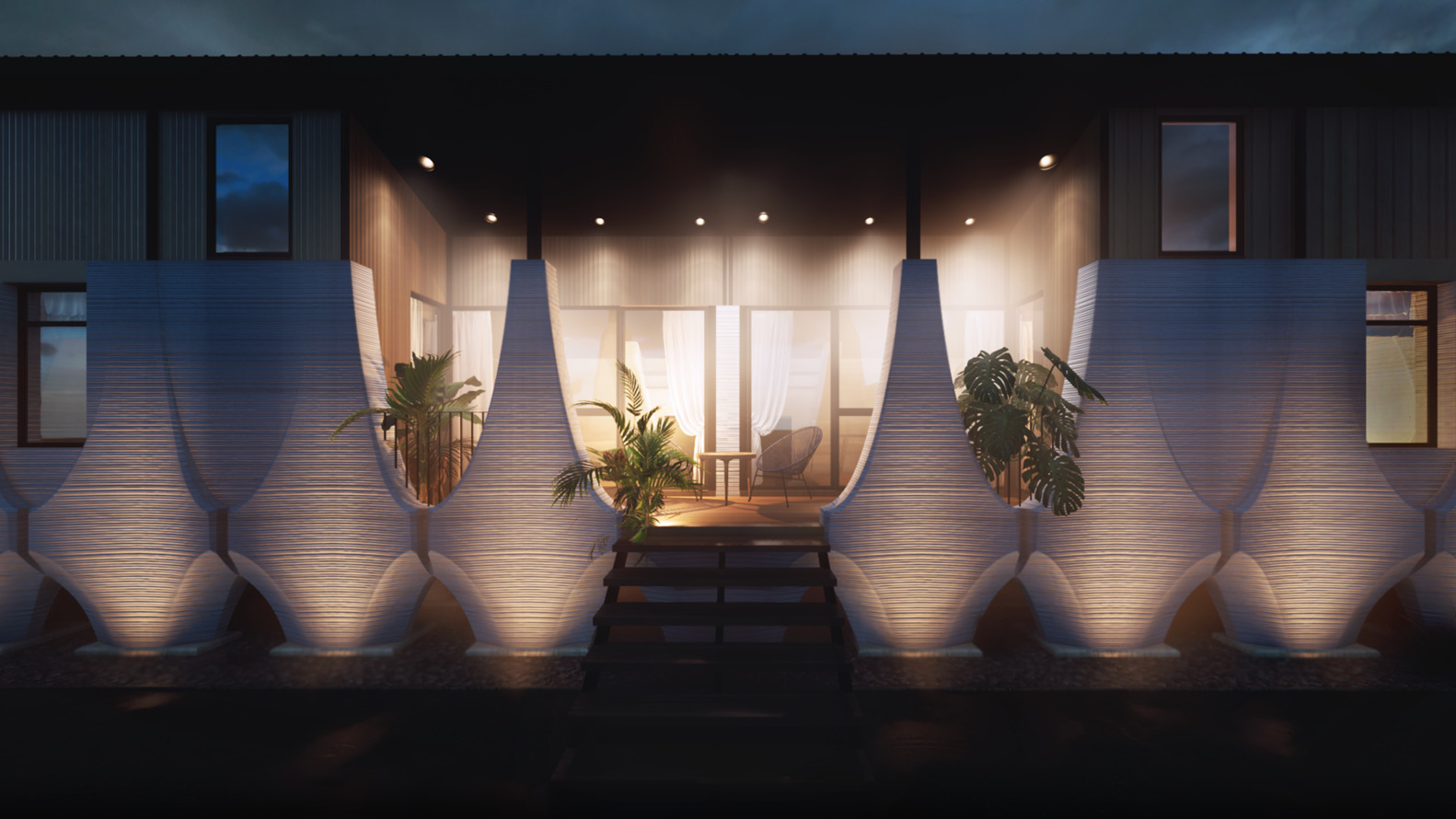In an open competition hosted by ICON’s Initiative 99, participants were challenged to design a home using ICON’s 3D printing technologies while adhering to a construction budget under $99,000. Among the three winners selected for the Open Category, New Zealand-based firm MTspace Studio presented a resilient flood-resistant design, addressing the housing crisis in New Zealand’s flood-prone areas. Named «Wai Home» after the Māori word for water, the concept centers around embracing this vital natural element. The design incorporates innovative rainwater collection and storage systems, as well as features aimed at bolstering the construction’s resilience against escalating threats.

As per the architects’ assessment, the challenging terrain and climate change are exacerbating the risk of flooding in New Zealand, alongside paradoxically escalating drought occurrences. The persistent housing crisis further compounds these challenges, particularly in Auckland’s flood-vulnerable regions, putting residents at significant risk. With their «Wai-Home» initiative, MTspace Studio presents a design solution aimed at tackling this dual issue of the water crisis and the demand for social housing.

Their design is tailored to the specific conditions of Auckland, a city facing significant flood risk and housing shortages. Informed by data from the New Zealand Ministry of Social Development, the project addresses the needs of individuals aged 25 and above, living independently or with a child. The initiative entails the construction of eight residences within a designated area, each meticulously designed to maximize space utilization while fostering community interaction. The 387 sq. ft. dwellings feature a living room, kitchen, bedroom, spacious bathroom, and a loft that can serve as an additional bedroom or storage area.
Elevated on pillars to ensure resilience in flood-prone zones, the homes incorporate a rainwater harvesting system within their walls, capturing and distributing water for domestic use. Additionally, the facades are strategically designed to guide rainwater flow towards the garden, facilitating efficient landscaping. Careful consideration is given to the wall shapes to enable uninterrupted 3D printing, optimizing the efficiency of the printing process. Structural Insulated Panels (SIP Panels) are utilized in the floor and roof to ensure thermal efficiency and expedite installation.


